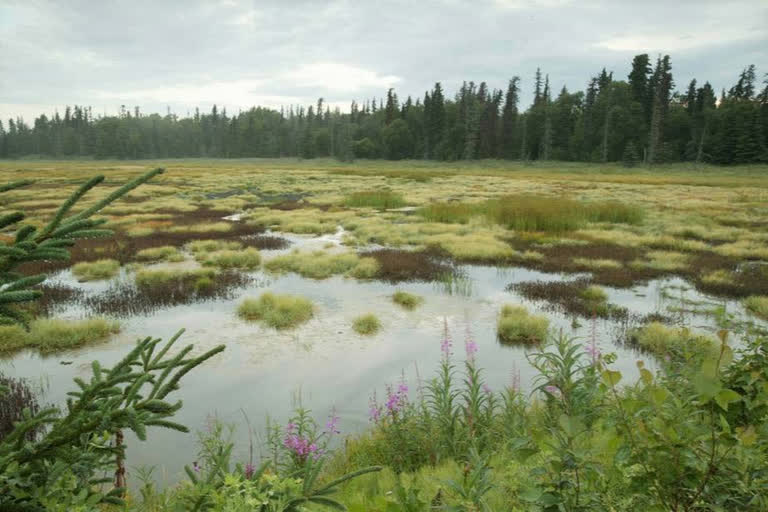Hyderabad:World Wetlands Day is celebrated internationally each year on 2 Februaryto raise global awareness about the high importance of wetlands for us and our planet. Today marks the 50th Anniversary of the Ramsar Convention where on 2 February 1971 the world adopted the 'Convention on Wetlands' in the Iranian city of the shores of the Caspian Sea.
This year's theme for World Wetlands Day is 'Wetlands and water' that shines a spotlight on wetlands being a source of freshwater and encourages actions to restore them and stop their loss.
The reason behind marking this day is to talk about the depleting wetlands that are a major source of fresh water, something of which we are facing a growing crisis. We use more freshwater than nature can replenish which is concerning since these fresh and saltwater wetlands sustain life and nature. They support our social and economic development through multiple services.
The 2021 campaign highlights the contribution of wetlands to the quantity and quality of freshwater on our planet. Water and wetlands are connected in an inseparable co-existence that is vital to life, our wellbeing and the health of our planet.
What are Wetlands:
Wetlands are land areas that are saturated or flooded with water either permanently or seasonally. Inland wetlands include marshes, ponds, lakes, fens, rivers, floodplains, and swamps. Coastal wetlands include saltwater marshes, estuaries, mangroves, lagoons and even coral reefs. Fishponds, rice paddies, and saltpans are human-made wetlands.
Also read: Brazil's horrific blaze kills 200 jaguars, reptiles
Importance of Wetlands:
Wetlands are among the most diverse and productive ecosystems. They provide essential services and supply all our fresh water.
Wetlands are vital for human survival. They are among the world’s most productive environments; cradles of biological diversity that provide the water and productivity upon which countless species of plants and animals depend for survival. Wetlands are indispensable for the countless benefits or “ecosystem services” that they provide humanity, ranging from freshwater supply, food and building materials, and biodiversity, to flood control, groundwater recharge, and climate change mitigation.
Functions of wetlands do:
1. Store and clean water
- Wetlands hold and provide most of our freshwater.
- They naturally filter pollutants, leaving water we can safely drink.
2.Keep us fed
- Aquaculture is the fastest-growing food production sector, while inland fisheries alone provided 12 million tonnes of fish in 2018.
- Rice paddies feed 3.5 billion people annually.
